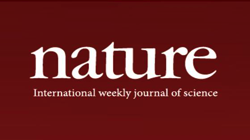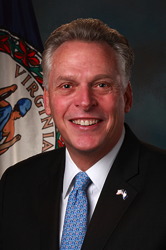
Noble Life Sciences (Gaithersburg, MD), a provider of preclinical drug development services, today announced the acquisition of Spring Valley Laboratories (Sykesville, MD), a full service, GLP (Good Laboratory Practice)-compliant, preclinical contract research organization (CRO) for the development of drugs, vaccines, and medical devices.
The acquisition greatly expands Noble’s services to include GLP regulatory standards, studies in small and large animals, and testing capabilities for vaccines and medical devices. Combined with Noble’s recognized strength conducting studies directed at early-stage products, the acquisition of Spring Valley Laboratories extends the Company’s suite of offerings across the full continuum of preclinical studies from initial product discovery through regulation-compliant studies for submission to FDA and other similar agencies.

"Today, on this stage in the auditorium of Richard Montgomery High School - a magnet school that symbolizes the quality education that is Montgomery County - I stand before you with great humility and excitement about the future as I begin my third term as your County Executive."
"I have learned throughout my life that families are our “links” to our past, our anchors in the present, and bridges to our future. So, to my family, your love, support and patience have kept me grounded."

Eyeing the biotech IPO boom earlier this year, Ariosa Diagnostics planned to go public as it battled larger competitors in the prenatal testing field. But the San Jose, CA-based company backed off in late April, and that was its last chance. Multinational healthcare firm Roche has bought Ariosa for an undisclosed amount, the companies announced today.

Steve Silverman resigned this week as the director of the Montgomery County Department of Economic Development.
County spokesman Patrick Lacefield said Silverman, who has served in the role since 2009, left the post to purse a job in the private sector.

Tom Telford ’s stomach ached. The New York City teacher had been drinking cup after cup of coffee as he labored to finish year-end grading and coach his high-school baseball team through the playoffs. He worried he might have an ulcer.

BioCity, the Bioscience incubation specialist with locations in the East Midlands (BioCity and Medicity in Nottingham), the North West (BioHub at Alderley Park) and Scotland (BioCity Scotland at Newhouse), has announced a new investment fund, created following a significant contribution by AstraZeneca.

Swiss pharmaceutical giant Roche Holdings (NASDAQ:RHHBY) recently announced the acquisition of Ariosa Diagnostics, which makes non-invasive prenatal testing equipment. The terms of the deal were not disclosed by Roche in its press release. According to WHO, there are over 200 million pregnancies worldwide annually and prenatal testing to detect Down syndrome is gaining strong traction.

Entrepreneurs on college campuses got another boost Thursday with Boston-area Xfund closing a $100 million fund to bankroll new ideas and support startups it’s backed so far.

A quick note: Nature announced yesterday that it will make all of its articles free to view, read, and annotate online. That applies to the historic science journal (launched in 1869) and to 48 other scientific journals in Macmillan’s Nature Publishing Group (NPG). Other titles include Nature Genetics, Nature Medicine and Nature Physics.

Pieris AG has achieved the fourth milestone payment for its lead Anticalin® program with Daiichi Sankyo Company, Limited (hereinafter Daiichi Sankyo; headquartered in Chuo Ward, Tokyo, TSE 4568), triggering an undisclosed payment, the company announced today. This milestone marks in total the sixth milestone achieved for the parties' two R&D collaborative projects. Specifically, the milestone was the decision by Daiichi Sankyo to initiate a GLP toxicity study in non-human primates. In 2013, Pieris transferred the program to Daiichi Sankyo, which is responsible for further development of the program.

Takeda Pharmaceutical Company Limited (TSE:4502) today announced its global oncology business unit, headquartered in Cambridge, MA, will be called Takeda Oncology. The creation of Takeda Oncology will improve the company’s ability to meet the unique and urgent needs of cancer patients, their loved ones and health care providers worldwide. Takeda will sustain its long-standing entrepreneurial approach to oncology research and development while expanding its global commercial network and resources as Takeda Oncology. Takeda is retiring the Millennium: The Takeda Oncology Company brand, and replacing it with Takeda Oncology to reflect the new global oncology business unit.

Blueprint Health has formed an interdisciplinary group inside and outside of healthcare to develop and assess new healthcare technologies earlier in an effort to reduce risk and to better predict the ROI of solutions earlier, according to a company statement. The Blueprint Health Collective will be totally separate from its New York City-based accelerator.

Governor Terry McAuliffe on Thursday announced a Virginia Bioscience Initiative, kicking off the effort with a public and private sector roundtable discussion on the commercialization of university bioscience research at the State Capitol. University representatives and bio industry leaders joined the Governor, members of his administration and renowned Massachusetts Institute of Technology Professor Dr. Robert S. Langer for this discussion.

I was asked by the U.S.-UK Fulbright Commission to give a series of lectures in the United Kingdom in 2013 on the topic of diplomacy. This was surprising, as I am even marginally competent in only one domain of diplomacy—the forms of international relations that involve nations working together in fields of medical science and health. So I proposed to address the question of what accounted for the success—despite inherent difficulties and adverse circumstances—of three important and ambitious international initiatives in medicine and related science undertaken by the United States.

Learn How to Get Seed Funding Investment for Your Business from the Government! Featuring SBIR program managers from leading Federal agencies invited including DOD, NIH, NCI, and Homeland Security plus case studies from experienced SBIR recipients and much more! Network with the SBIR program managers during an Expo and meet other business owners.
This event is generously supported by Johns Hopkins University Montgomery County; Maryland Technology Development Corporation; BioHealth Innovation; and the Montgomery County Department of Economic Development.

The recent bumpy landing of Philae on comet 67P/Churyumov-Gerasimenko after a ten year journey, and more than 1.4 billion euros in investment, is a fantastic example of European science, expertise and collaboration at work.

Biopharmaceuticals are among the most sophisticated and elegant achievements of modern science. The huge, complex structures of these drugs don’t just look extraordinary in the 3-D modeling systems used to design them; they also perform their jobs remarkably well, offering high efficacy and few side effects. And there is much more to come: existing treatment archetypes are evolving and becoming more sophisticated all the time, and continuing research is yielding entirely new types of products.

Canadian researchers have developed “smart textiles” able to monitor and transmit wearers’ biomedical information via wireless or cellular network by superimposing multiple layers of copper, polymers, glass, and silver.

GI View out of Ramat Gan, Israel finally won FDA clearance to introduce to the U.S. market its self-propelled single-use Aer-O-Scope colonoscope. This device originally appeared on our radar almost a decade ago, but the regulatory road seems to have been rocky for GI View, and the company expects it will be at least another year before it begins introducing the Aer-O-Scope to the U.S. market.

Most people’s to-do lists are, almost by definition, pretty dull, filled with those quotidian little tasks that tend to slip out of our minds. Pick up the laundry. Get that thing for the kid. Buy milk, canned yams and kumquats at the local market.

Federal spending on scientific research hasn’t kept up with inflation in recent years, and it’s made it harder for researchers to fund their work. Some of them are turning to another source: crowdfunding. But this funding source raises new questions for scientists.